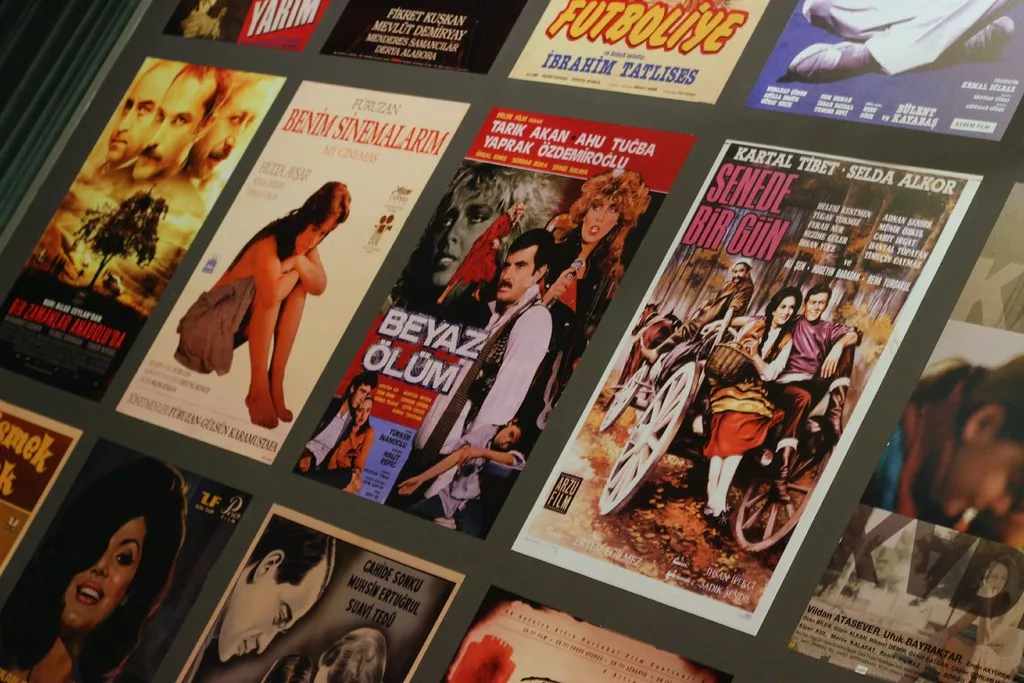
Atıf Yılmaz was a Turkish film director. Until his death in 2006, he was extremely prolific and directed films across every decade of Turkish cinema starting in the 1950s. He directed more than a hundred films in total – I’ll write about two of them.
Two of the films he made during the Yeşilçam Era (the name given to what is usually considered the ‘golden age’ of Turkish cinema between the 1960s and the ‘70s) were Kibar Feyzo and Selvi Boylum, Al Yazmalım both of which were released in 1978.
Kibar Feyzo (‘kibar’ means ‘kind’ or ‘polite’) is a comedy film. It stars Kemal Sunal, who is probably the best-known Turkish comedian. Kibar Feyzo may be the funniest film I’ve ever seen, although most of its comedy is derived from the ridiculously clever wordplay that I’m not sure a non-native speaker would comprehend. At any rate, if you’re not Turkish and have decided to watch this film, you’ll still find it funny and have a good time. You might just not laugh at every other sentence like I did.
Kibar Feyzo’s cinematography is drenched in sunlight. It has a bombastically light-hearted soundtrack and a very cheerful cast of characters. Everything about it is jolly, or so it would seem. Kibar Feyzo is about a poor villager returning to his home village after military service. He is Feyzo, and he is determined to marry Gülo, the girl he loves. However, he is forced to come up with an enormous sum of money to appease Gülo’s father and receive her hand in marriage. Penniless, Feyzo sets out to secure every bit of money he can, and funny shenanigans start happening from there.
However, Kibar Feyzo is also about domestic violence, corruption, ethnic persecution, the exploitation of workers, misogyny, police brutality, and so on. It’s one of my favourite comedies, a brilliant exercise in dark humour. Across its 83-minute runtime, its satire and over-abundance of jokes never gets boring. You might find yourself so caught up in Feyzo’s amazingly humorous voice-over that by the end of the film, you’ll forget that you are watching a flashback. In this last scene at the police station, Feyzo delivers such an abruptly devastating final line that suddenly the film isn’t so funny anymore. Why is he there? I’ll let you find that out.
Selvi Boylum, Al Yazmalım, Yılmaz’s other 1978 feature, is best known internationally with the title The Girl with the Red Scarf. I dare not write down its very lengthy literal translation lest I incur the wrath of the Cherwell Editor Team. Unlike Feyzo, this film doesn’t pretend to disguise itself as a comedy. It is a sad – yet very engaging – story of a woman named Asya, who falls in love with a man named İlyas, has a child with him, and promptly gets cheated on. Asya is in an inconvenient situation: her family has disowned her because she married someone not of their choosing, so she can’t go back there. She has a son now whom she must take care of, so she can’t just take the bus to the big city and hope to find work and a place to stay. This is where a third party enters her story: another man, who teaches her the actual definition of love, or she teaches it to both men – I don’t know, the last twenty minutes of this is very emotionally intense. Another great thing about Girl with the Red Scarf is that it has the best theme song I’ve ever heard. I listen to it most days. This is a much better-known film in Turkey than Feyzo, which is my personal favourite.
These are two of the four feature films Yılmaz directed in 1978. Feyzo was banned for ten years before it became a cult classic, and Girl with the Red Scarf is now hailed as one of the masterpieces of Turkish cinema. I’d say both of them deserve the latter’s treatment, and so do many other films of his.

